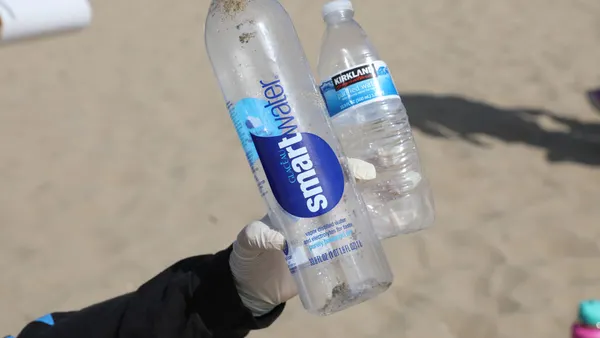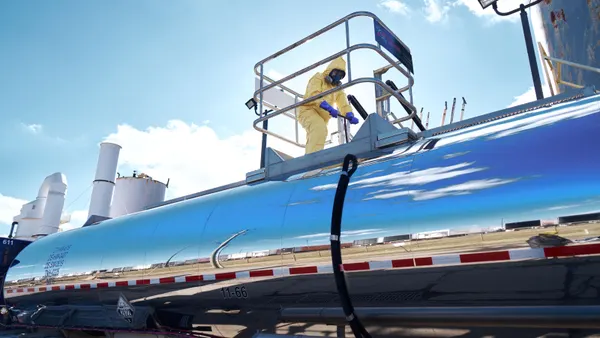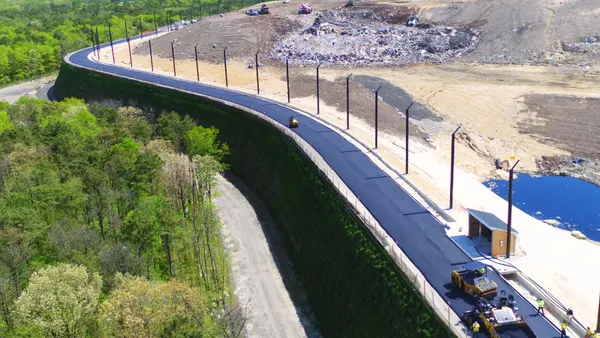Dive Brief:
- Coffee machine manufacturer Nespresso has teamed up with Sims Municipal Recycling and New York's Department of Sanitation to find better strategies for recovering the company's single-serve aluminum coffee pods through the city's curbside recycling program.
- Nespresso, an operating unit of Nestle, committed $1.2 million to developing solutions for coffee pod recycling in the city. The funding will help Sims invest in technology needed to improve efficiency in its non-magnetic metals recycling processes and reduce the amount of aluminum disposed. In addition to advancing coffee pod recycling, the initiative aims to address how consumers can better recycle other lightweight aluminum products, such as foil.
- The equipment upgrades are expected to be operational by this fall, at which time city residents will be able to put both their coffee pods and aluminum foil out for curbside recycling collection. Nespresso doesn't have a public estimate for how many pods will be captured, but plans to assess capture rates via periodic audits.
Dive Insight:
While some of the materials coffee pods are composed of — such as a metal base and plastic or paper lid — can be recycled if kept separate, blending materials renders the products difficult or impossible to recycle. Their small size and light weight also make the pods a challenge for standard municipal recycling facilities.
While Nespresso already offers pre-paid recycling bags to consumers who want to send back their used coffee pods, the inconvenience of taking items to a drop-off location inhibits participation. This new curbside recycling partnership is seen as a more viable and accessible way of encouraging participation.
Consumers in modern society increasingly crave convenience and multiple options in the goods and services they use. Reliance on single-stream recycling illustrates one of those conveniences, and single-serve pod coffee machines present another. But convenience and long-term sustainability don't always naturally coincide, and companies may end up having to retroactively find recycling solutions if they aren't incorporated into the design phase.
This partnership could serve as an example of how to deal with other difficult-to-recycle items. Getting input from different stakeholders on multiple sides of the problem — rather than, for instance, a packaging manufacturer attempting to devise solutions without input from recyclers and municipalities — can lead to greater success in a shorter amount of time.
A similar collaboration produced a solution that came to fruition late last year when the city of Denver, Alpine Waste & Recycling, the Foodservice Packaging Institute and Sustana partnered to find a way to add coffee cups — another difficult-to-recycle item — to the city's curbside program. Keurig Green Mountain has also garnered attention in recent years for ongoing industry engagement in testing how its plastic coffee pods travel through MRFs.










